第50章
Moving masses of soldiers are also resorting to cunning in order to mislead the airman or to escape his observation. At the battle of Haelen, during which engagement the German warplanes were exceptionally active, the Belgian soldiers covered their heads with bundles of wheat snatched from the standing stooks, and under this cover lurked in a field where the corn was still standing. From aloft their forms defied detection: the improvised headgear completely covered them and blended effectively with the surrounding wheat. In another instance the French misled a German airman somewhat effectively. What appeared to be cavalry was seen to be retreating along the country road, and the airman returned hurriedly to report. AGerman squadron was dispatched in hasty pursuit. But as it rounded a copse skirting the road it received a murderous fire at close quarters, which decimated the ranks and sent the survivors flying for their lives along the road up which they had ridden so confidently. Had the aviator been in a position to observe the horses more closely, he would have found that what appeared to be riders on their backs were in reality sacks stuffed with straw, dressed in old uniforms, and that a mere handful of men were driving the animals forward. The cavalrymen had purposely dismounted and secreted themselves in the wood in anticipation of such a pursuit as was made.
While the Germans do not appear to be so enterprising in this form of ingenuity they have not been idle. A French airman flying over the Teuton lines observed the outermost trenches to be alive with men whose helmets were distinctly visible. The airman reported his observations and the trench was subjected to terrific shell fire. Subsequently the French made a spirited charge, but to their dismay found that the outermost German trench was occupied by dummies fashioned from all sorts of materials and crowned with helmets! This ruse had enabled the German lines to be withdrawn to another position in safety and comparatively at leisure.
Before war was declared the German military experts were emphasising the importance of trees for masking troops and guns against aerial observation. One of the foremost authorities upon military aviation only a few months ago urged the German Military Staff to encourage the planting of orchards, not for the purpose of benefiting agriculture or in the interests of the farmers, but merely for military exigencies.
He pointed to the extensive orchards which exist in Alsace-Lorraine and Baden, the military covering value of which he had determined from personal experience, having conducted aerial operations while military were moving to and fro under the cover of the trees. He declared that the cover was efficient and that under the circumstances the laying out of extensive orchards in strategical places should be carried out without any delay.
This, he urged, was a national and not a private obligation. He advocated the bestowal of subsidies on the farmers to encourage the planting of fruit trees. He suggested that the trees should be provided by the State, and given to all who were prepared to plant them; that substantial prizes should be awarded to encourage the rapid growth thereof, and that annual prizes should be awarded to the man who would undertake their cultivation and pruning, not from the fruit-yielding point of view, but for facilitating the movement of troops beneath their dense branches.
He even urged the military acquisition of suitable land and its determined, skilful, and discreet exploitation by those who loved the Fatherland. He emphasised the necessity for keeping such orchards under military control, only vouchsafing sufficient powers to the local authorities to ensure the desired consummation. He maintained that, if the work were prosecuted upon the right lines and sufficient financial assistance were given, the purpose in view could be achieved without saddling the war department with any unremunerative or excessive burden. He admitted that the process of raising fruit trees to the stage when they would afford adequate cover would be tedious and somewhat prolonged, but argued that the military advantages, such as enabling troops to move below the welcome shelter with absolute freedom and without physical fatigue, would be an ample compensation.
The utility of such cover to artillery was another factor he did not fail to emphasise. He dwelt seriously upon the difficulty of rendering permanent gun emplacements and heavy artillery invisible to the airman by resort to the usual type of gun shields. The latter may be located with ease by alert airmen, whereas if the guns were under cover of fruit trees they would be able to accomplish their deadly mission without betraying their presence to the aerial scout. Moreover, by pruning the trees in such a manner as to ensure free movement beneath, the artillery would be able to advance without betraying the fact to the enemy.
This authority vigorously insisted that the work should be carried out without a moment's delay as it was vital to the Fatherland. In the light of recent events, and the excellent cover which is offered by the orchards of the territory he cited as an illustration of his contention, such a disclosure is pregnant with meaning. It throws a new light upon the thorough methods with which the Germans carried out their military preparations, and incidentally shows that they were fully alive to every possible development. Fruit-raising as a complement to military operations may be a new line of discussion, but it serves to reveal the German in his true light, ready for every contingency, and shows how thoroughly he appreciates the danger from the man in the clouds.